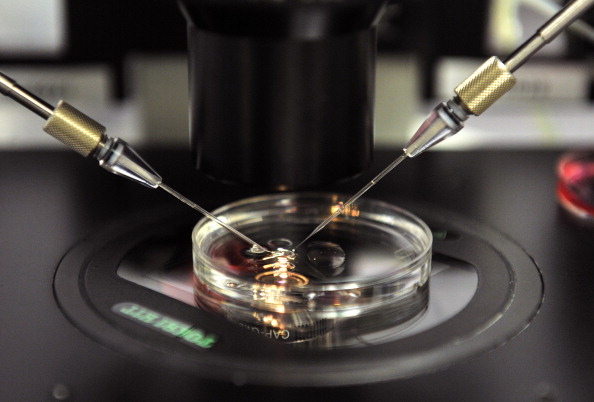
The sperm's attraction to the egg results from complex molecular interactions.
Istock
A sperm bank is
facing legal action from three families after it was alleged that the
facility had lied to them about the health and background of a donor.
The families, all from Canada, were allegedly told that the donor was a
"genius", but the donor had a history of mental health issues and a
criminal record.
According to a Sky News
report, the lawsuit is being filed against US-based Xytex Corp and the
Provence of Ontario Health Services, Canada. The families claim that the
two companies had misled them into believing that the donor – who is
only known by his ID, Donor 9623 – had an IQ of 160 and was working
towards a PhD in neuroscience engineering.
The plaintiffs are seeking $11.7m (£8.2m) in damages. They are accusing Xytek of "misrepresentation" over the donor's details.
"It's horrifying," said representative lawyer James Fireman in an interview with The Toronto Star.
"These couples were seeking assistance to build a family and were very
vulnerable, they put their faith in the (cryobank) industry, and this
happens."

Scientists create sperm in the lab for the first time possibly ending the stigma of male infertility.
Getty Images
The man – who is 39
years old and from Georgia – was reportedly diagnosed with
schizophrenia, a drug-induced psychotic disorder and other mental health
issues. He also has a history of criminal offences, including a 2005
conviction
of burglary.
Angie Collins, 29, and one of the women taking court action,
said that she blamed the company, rather than the donor, in the
interview with Toronto Star.
"He should not have done what he did, but the big problem is not with him,"
she said
. "It's with [the] companies that allowed him to donate and sold his sperm."
In an email to The Guardian,
Xytek's lawyer, Ted Lavender, said that the firm "...is an industry
leader and complies with all industry standards in how they safely and
carefully help provide the gift of children to families who are
otherwise unable to have them without this assistance".
The case is continuing.

Post a Comment